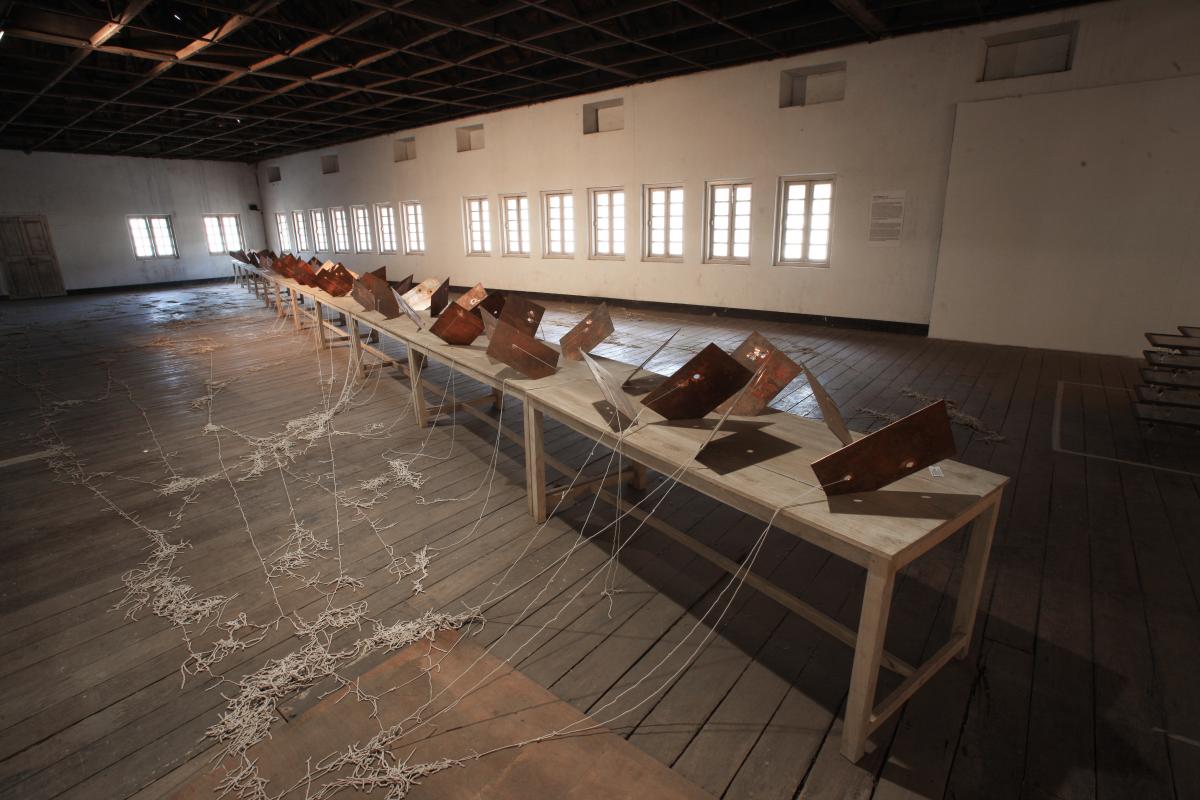Kochi-Muziris Biennale, India 2012
72 Privileges [.....]:
'It is precisely this balance between exile and the emotion of the privileged which forms the unique originality of our Breathing in Reverse. As will be clear already, there is no past or future in Exile, only an immediate present'. 2012
.....When issues of religious intolerance are rocking Europe, it is wonderful to see here in Kochi a laboratory of tolerance, where Hindus, Muslims, Jews and Christians co-exist in perfect harmony.
Here we can see how the concept of tolerance took shape by promoting a kind of balance between different religious groups. This could be an example for us in the West.
So, after being in such a close proximity to the history of Kochi and bumping into the story of the copper plates which tells us about the 72 privileges that were granted to the Jewish and Christian communities by the last king of the Chera dynasty, Cheraman Perumal (962-1019 AD), I have adopted the number 72 to be the main measurement of my work.
The 72 Copper plates (42cm x 30cm) are pierced with the star constellations found in the cosmos above the city of Jerusalem, and arranged diagonally on a long 22 meter wooden table that dissects the room.
Woven throughout is 5000 meters of tangled white cotton thread that represents the circumference of the old city of Jerusalem.
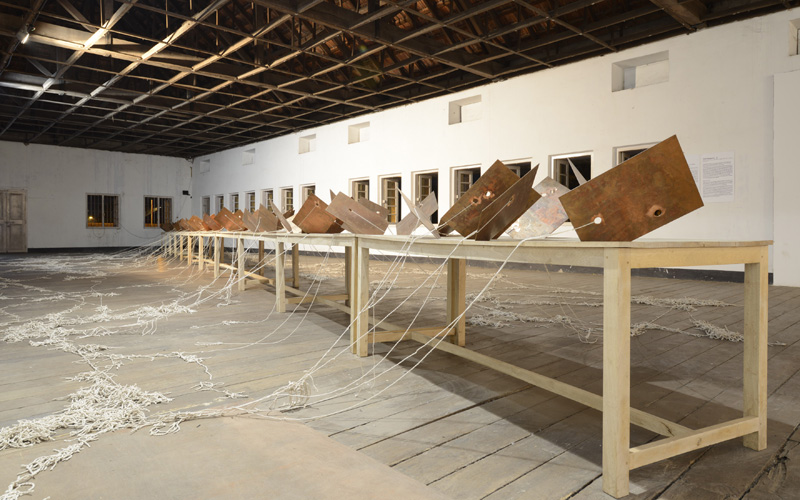
The accompanying 72 shadow drawings (42cm x 30cm), which were drawn with a black indian ink on various tracing papers are sawn together with white thread into a sheet of music notes.
The 72 drawings are in fact a visual guide to the history and the significance of the 72 privileges. 
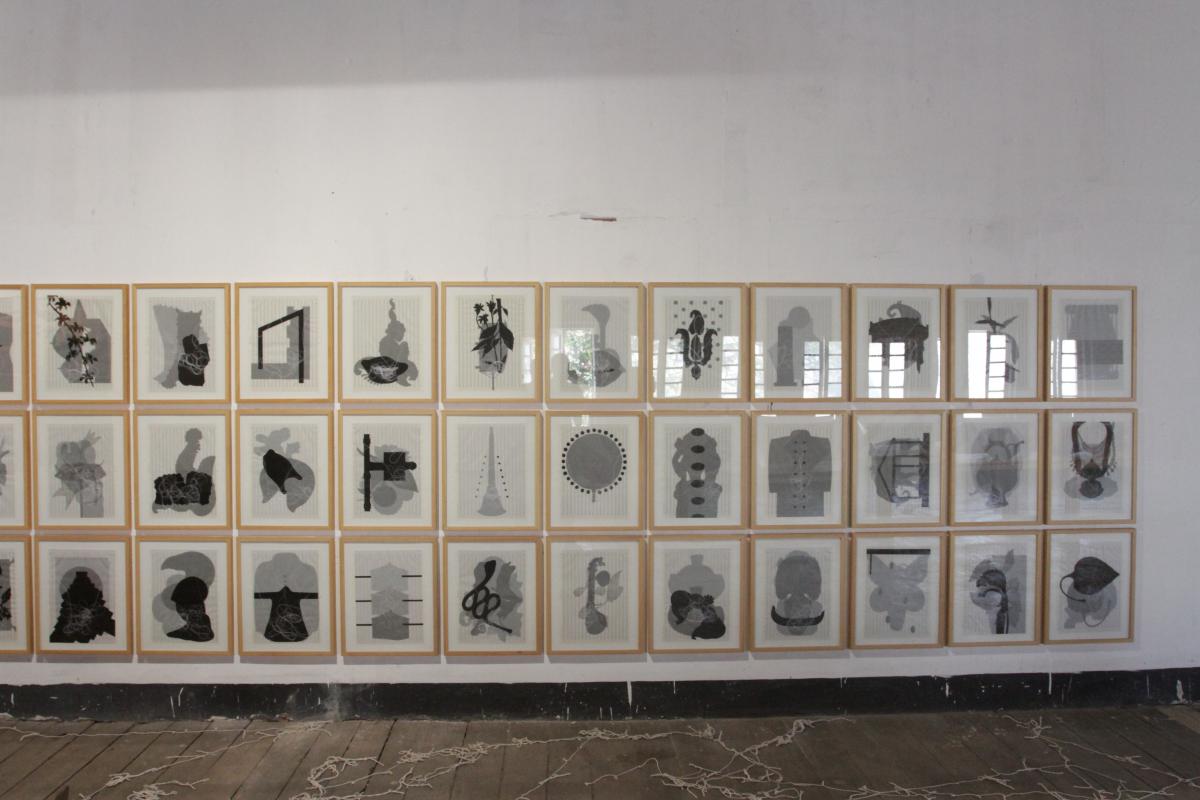
Brahmin king Cheraman Perumal, the last of the Chera Dynasty, granted 72 privileges to the Jews and Christians of Kochi, and inscribed them in ancient Tamil onto copper plates.
1. Ambari (Howdah on an elephant) 2. Ankaram (courtyard) 3. Antholam (palanquin) 4. Ammoolam (tax gathering) 5. Arpu (cheers) 6. Aala vattam (Peacock feather fan) 7. Aana savari (Elephant riding) 8. Uchippoovu (Head Turban) 9. Kacha (Robes) 10. Kacha puram (Over coat) 11. Kankanam (Bangles) 12. Kaal thala (Anklet Rings) 13. Kaal chilambu (Anklets Bells) 14. Kurava (Tongue Cheers) 15. Kuthirasavari (horse ride) 16. Kuzhal (Bugles) 17. Kodi (Flag) 18. Kaikara (Hand Ornaments) 19. Kaithala (Bangles) 20. Cheli (a kind of tax) 21. Chemkombu (another tax) 22. Chenda (Drum) 23. Thamburu (String Instruments) 24. Thazha kkuda (Royal Palm Umbrella) 25. Ner vaal (Straight Sword) 26. Pattu chatta (Silk Coat) 27. Patturumal (Silk Handkerchief) 28. Pattumundu (Silk dothi) 29. Pakal vilakku (Day Lamp) 30. Padi pura (Entry Gate House) 31. Pathakkam (Necklace) 32. Panni pudava (Embroidary Robes) 33. Paravathani (Carpet) 34. Pavaada (Royal Cloth) 35. Pallakku (Palanquin) 36. Pavada (Royal Cloth) 37. Panchavadyam (Five Instrument Orchestra) 38. Pandal Vithanam (Pandal Decoration) 39. Pathinezhu Parichamel Kathruthwam (Control over the 17 Low castes) 40. Maddalam (Hand Drum) 41. Manarkolam (Platforms) 42. Mudi (Crown) 43. Mudikuzhabharanam (Head ornaments) 44. Mammoolam (Tax) 45. Methi adi (Wooden Chappels) 46. Raja vaadyam (Royal Orchestra) 47. Raja Sankham (Irippu) (Honour to sit in court with the King) 48. Rajabogham (Honor to eat with King) 49. Veena (String Instrument) 50. Deevetti (Indigenous Torch) 51. Thookku manchal (Swinging Cot) 52. Thondon 53. Thoranam (Decoration) 54. Thol vala (Armpit Bangle) 55. Theendalkattal (untouchability) 56. Nada (Cheers) 57. Nayattuhubhogam (Privilege for hunting) 58. Naikudiparisha 59. Nedizakuda (Royal Umbrella) 60. Nettipetti (Cloth Box) 61. Nettikettu (Head Dress) 62. Veera vaadyam (Heroic Bugles) 63. Veera madalam 64. Veera srimkhala (Royal Chain) 65. Viri panthal (Honour to errect Pandal) 66. Venchamaram (Royal Fan) 67. Sankhu (conch) 68. Sangu Edam Piri (Conch with left screw) 69. Sankhu Valampiri (conch with right screw) 70. Bhoomi Karamozhivu (land tax evation) 71. Nayattu (Hunting) 72. Paalamarangal (Forest concession)
https://www.youtube.com/watch?v=mMZ0pMufbHs Joseph Semah
(KMB Let's Talk interview series)
http://video.webindia123.com/p_potpourri/art_and_craft/exhibitions/kochi_muziris_biennale/joseph_semah/index.htm
WEBindia123
The performance featuring 8 public figures of diverse religious denominations and a secular person, who are reading aloud, back-to-back, from their scriptures /book of influence in an impromptu fashion. At the same time, 72 pupils from diverse religious denominations took an active role by reading aloud and burning the 72 privileges inside 72 wine glasses.
Remember, the new sound created by the reading of the 8 persons, together with the 72 pupils is already advancing into a ready to hand meaningful gesture. That is the language of Art. There is no doubt, Breathing by Breathing, one is coming closer and closer to the impulses of the tradition of secularity which appear to dominate our creative desire.
Please note: to understand the inner meaning of the art-work, one should lie on the floor under the wooden table.
Kochi Muziris Biennale, India 2012
http://kochimuzirisbiennale.org/joseph-semah/
http://www.thehindu.com/todays-paper/tp-national/tp-kerala/kochi-gets-ready-for-a-dutch-treat/article4180329.ece
http://shevlinsebastian.blogspot.nl/2012/12/a-rulers-magnanimity.html
http://www.thehindu.com/todays-paper/tp-national/tp-kerala/artists-should-give-political-issues-a-wide-berth-semah/article4024605.ece

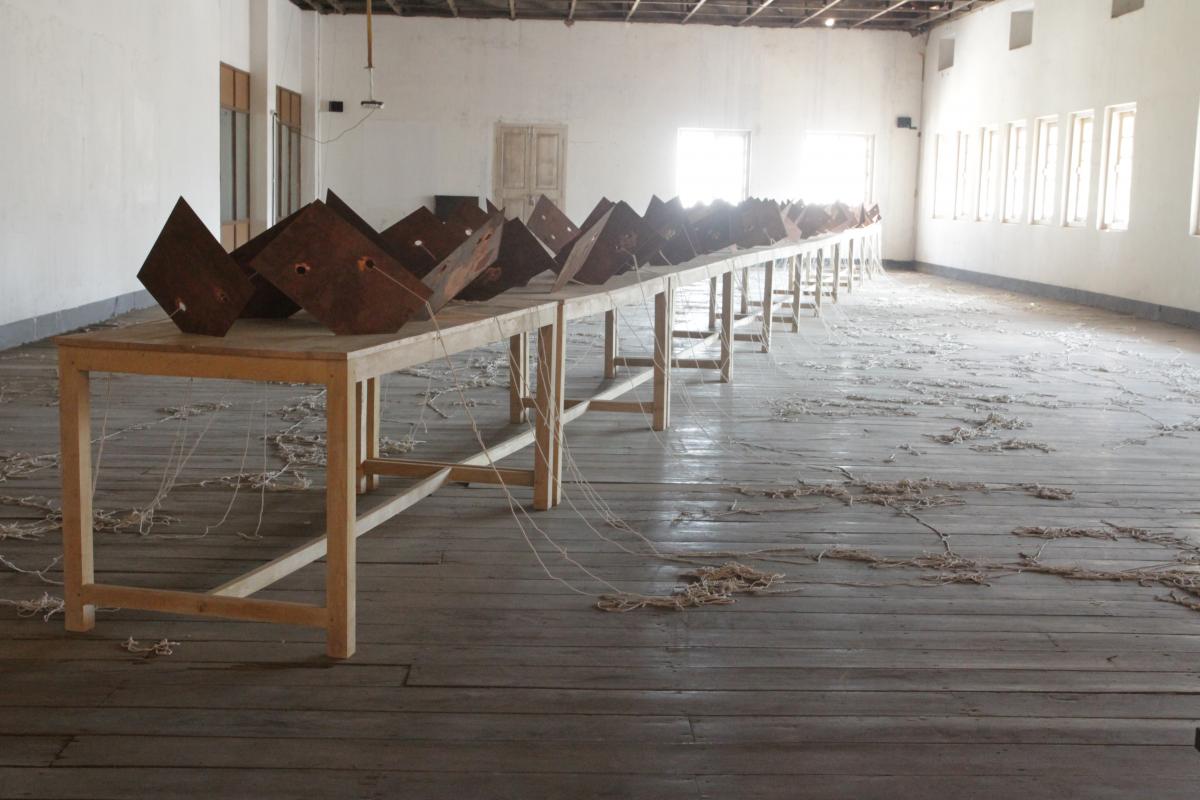
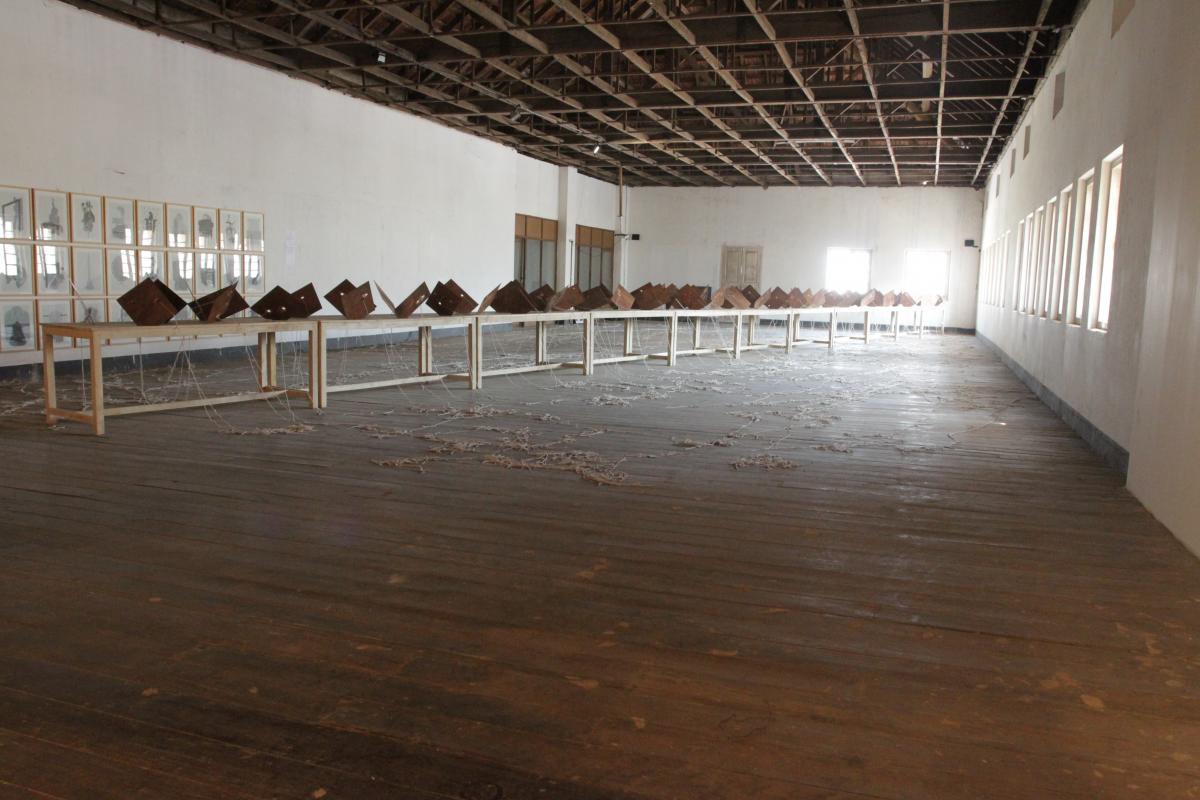

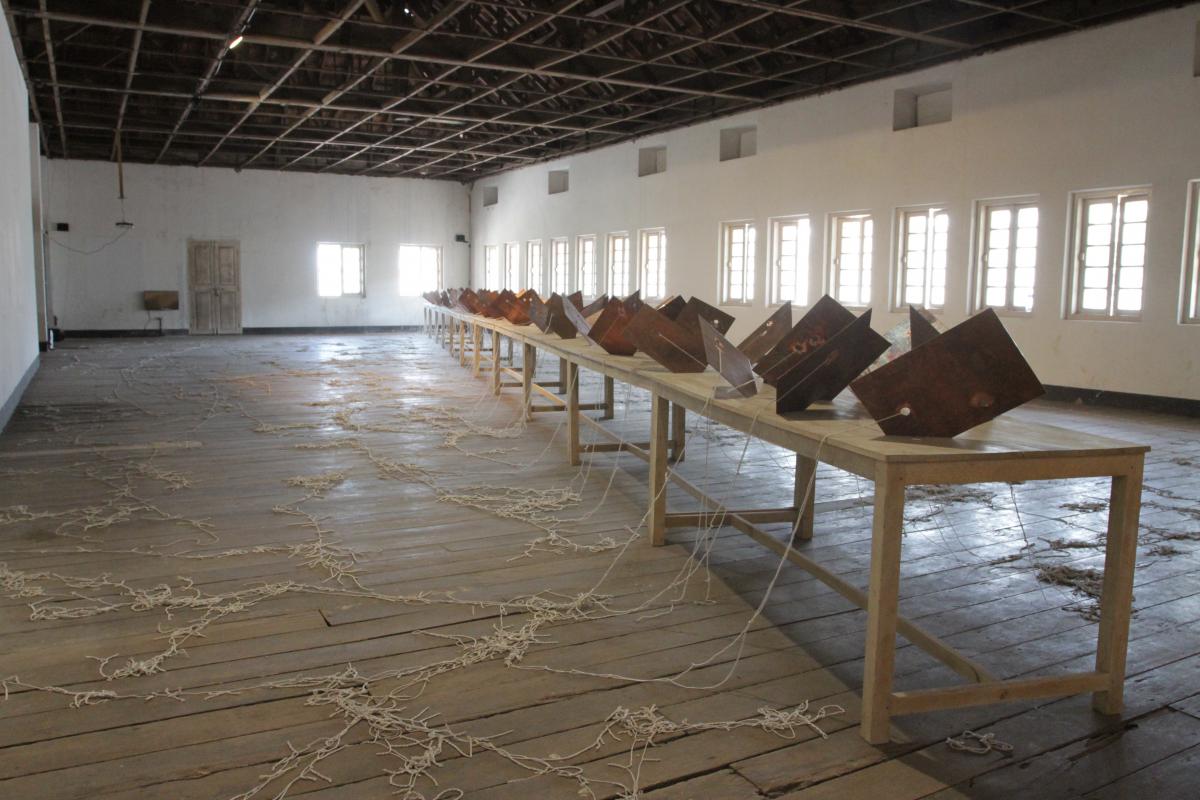
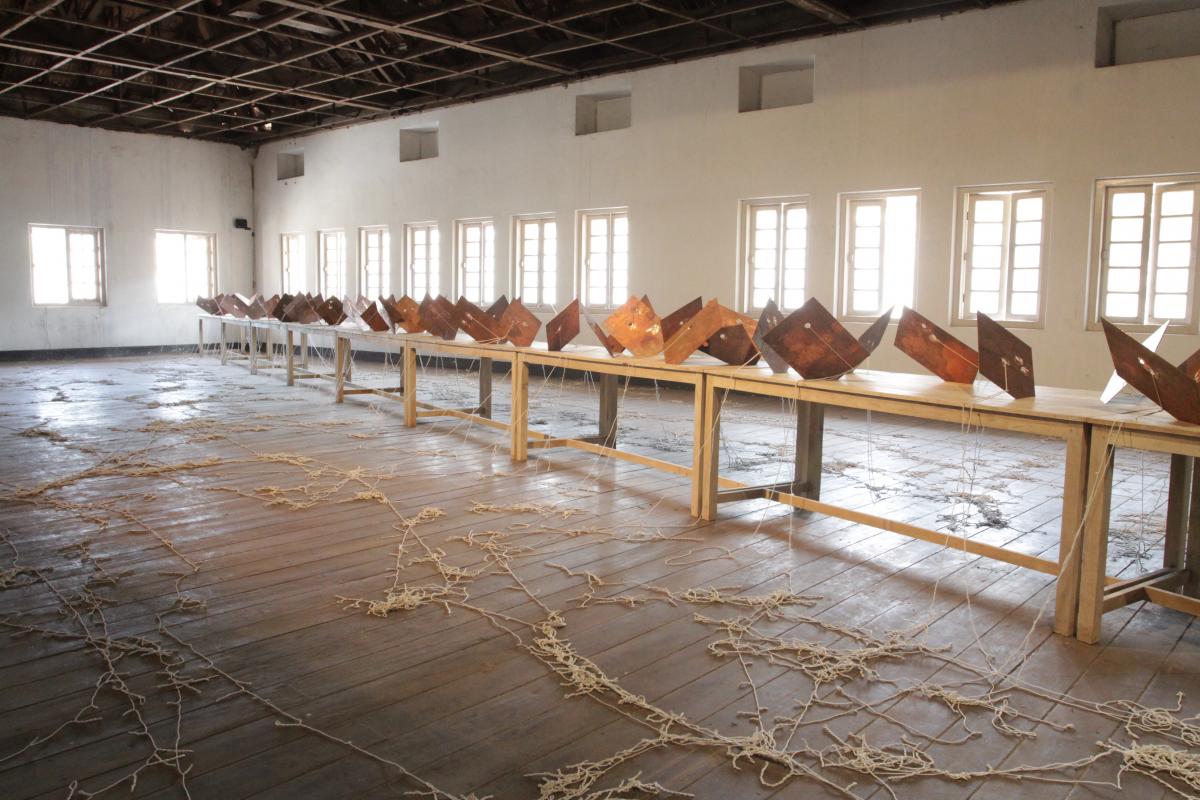
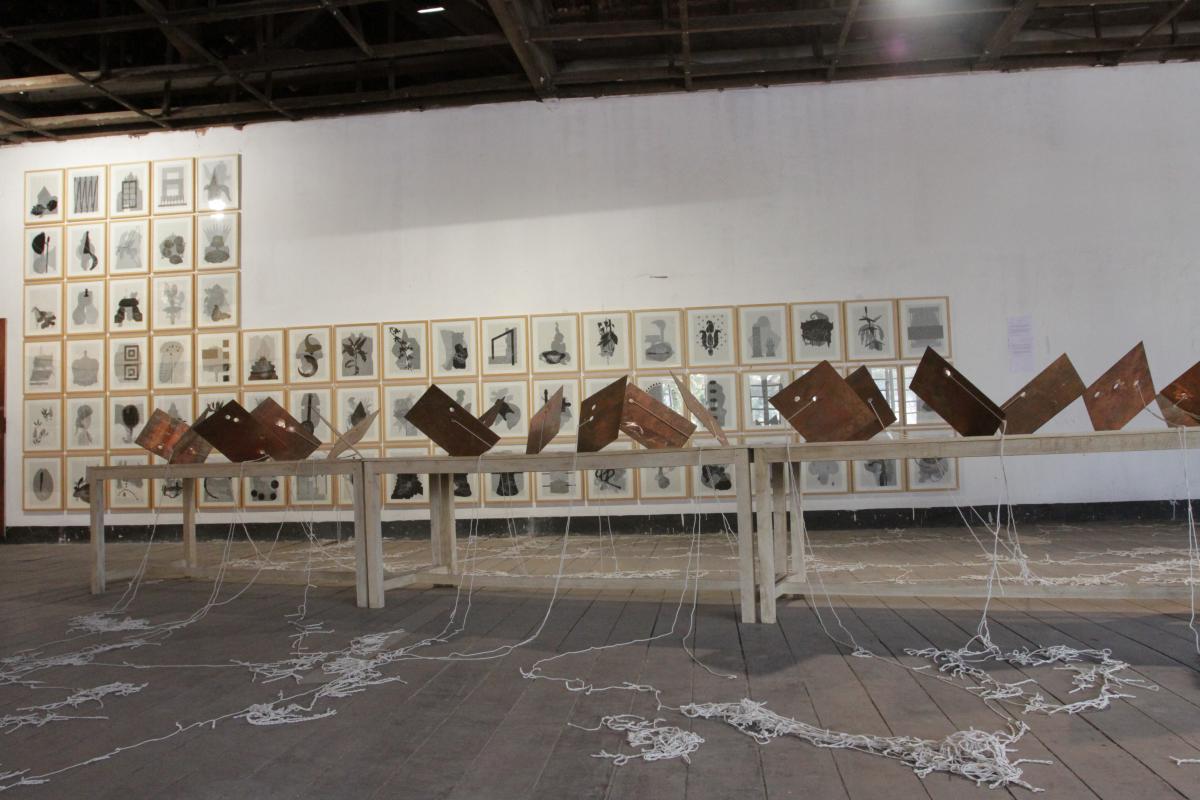
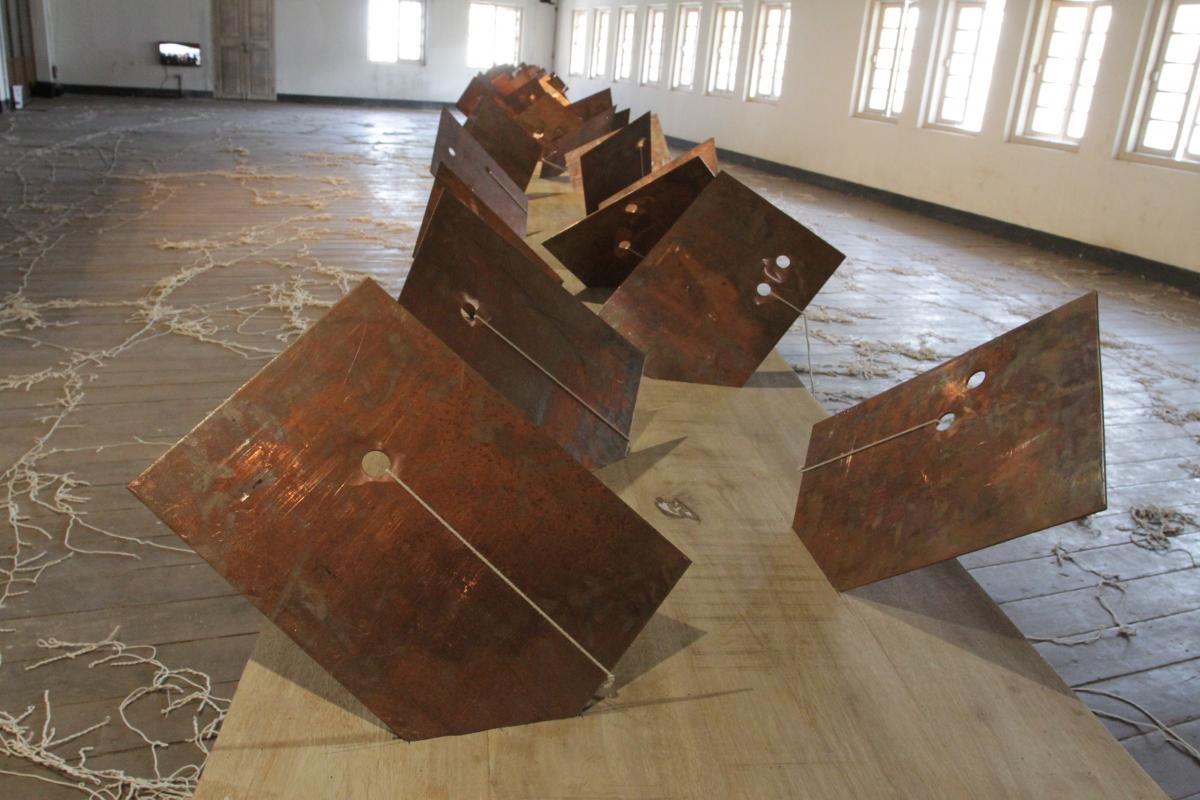
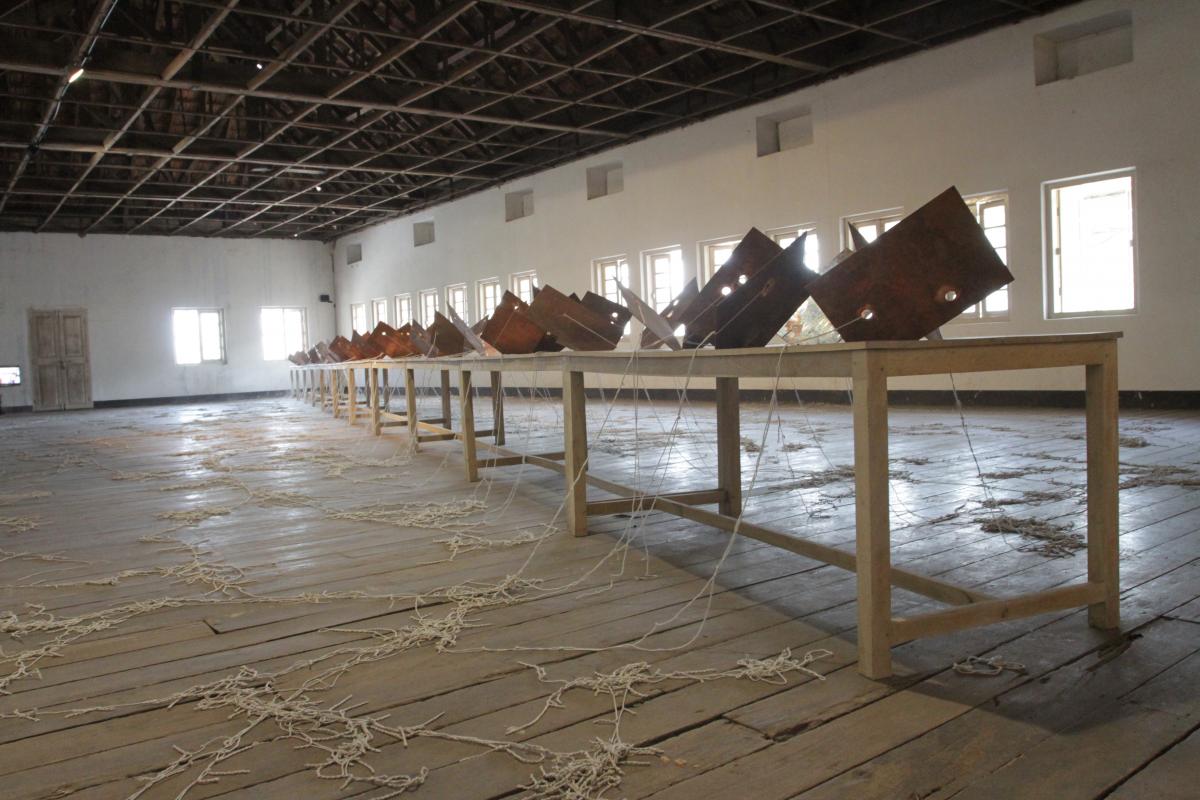



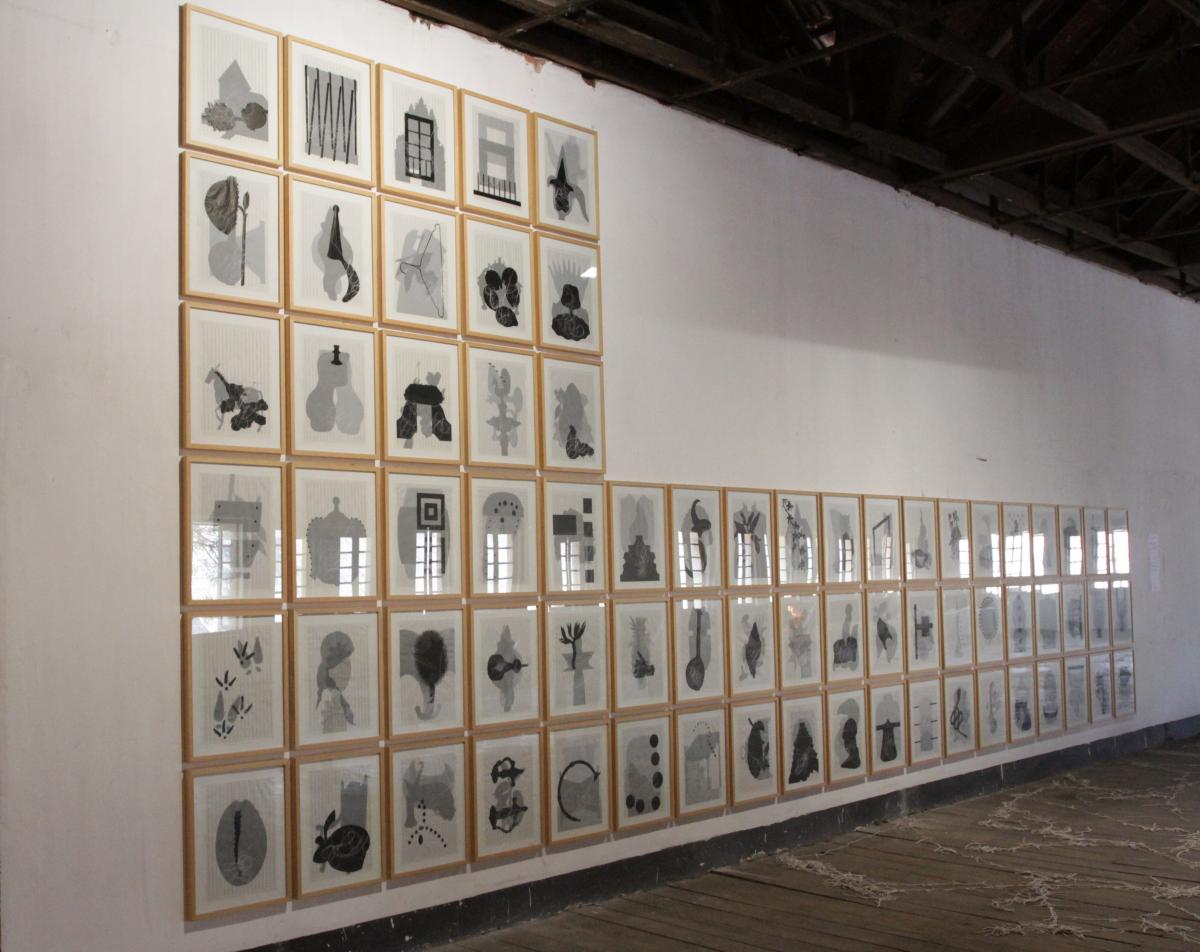
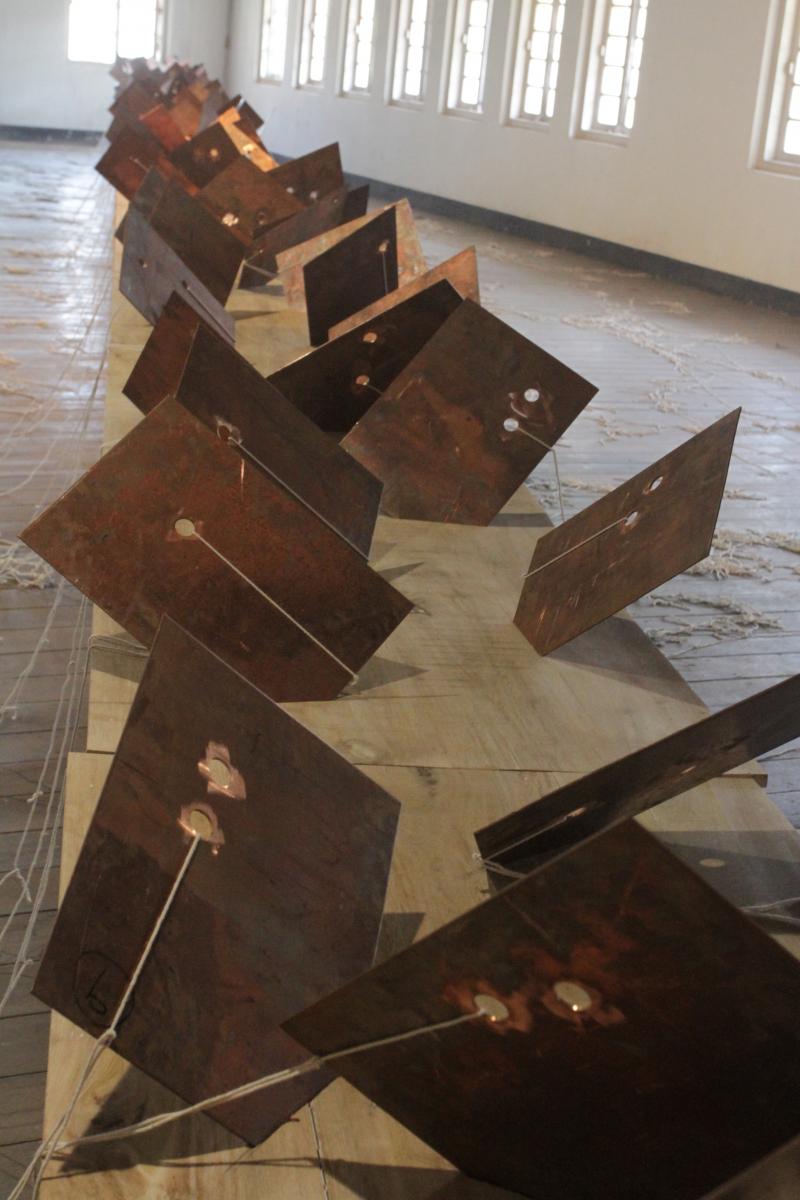

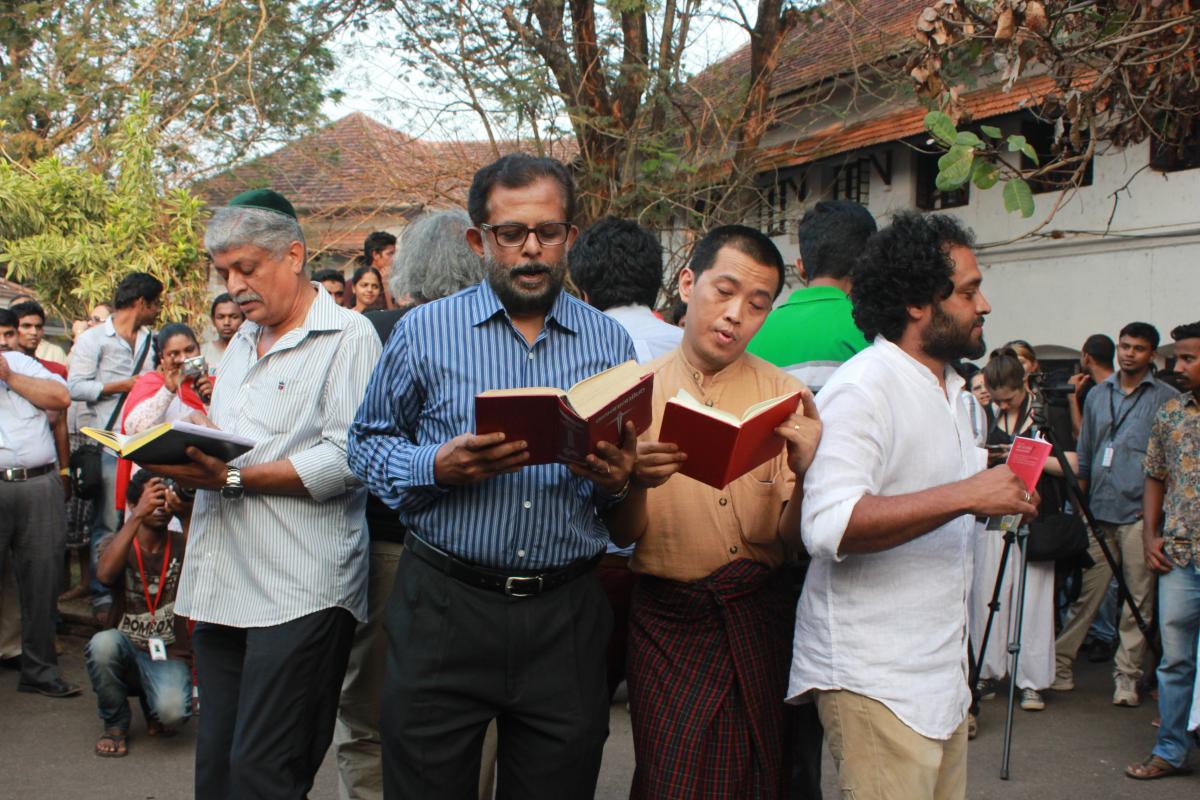


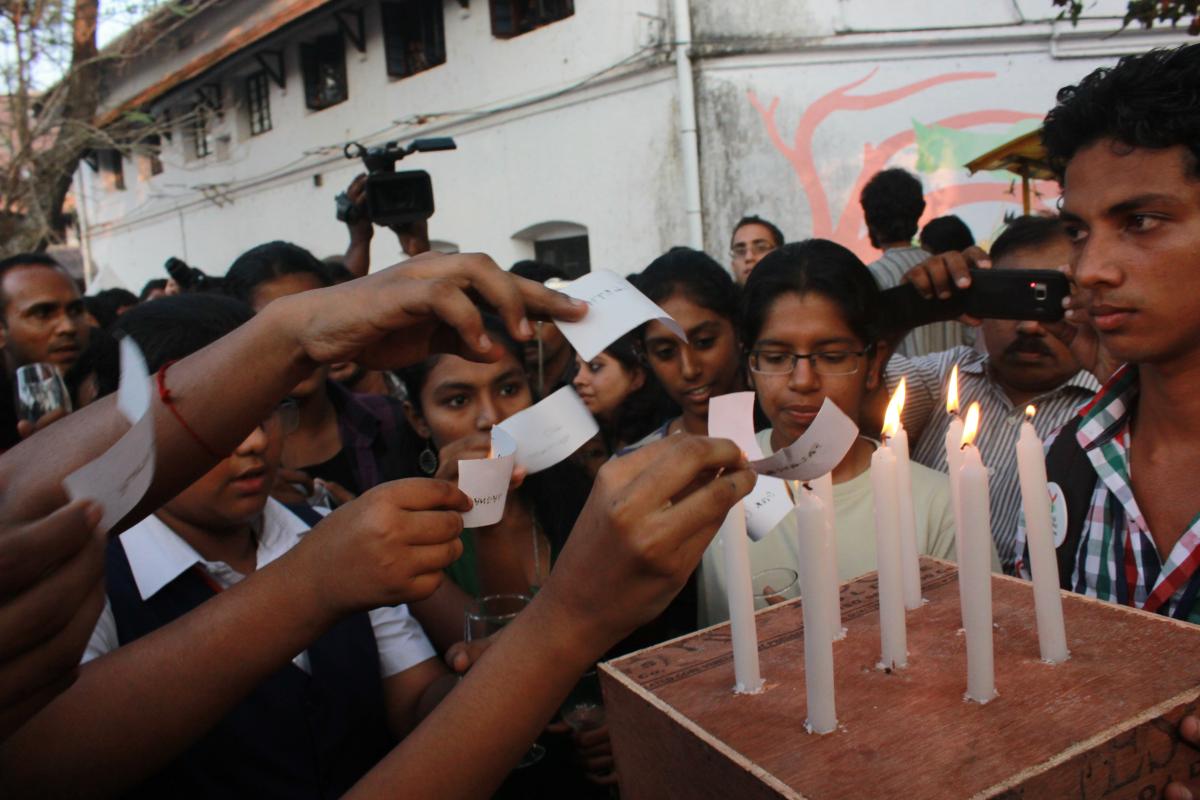
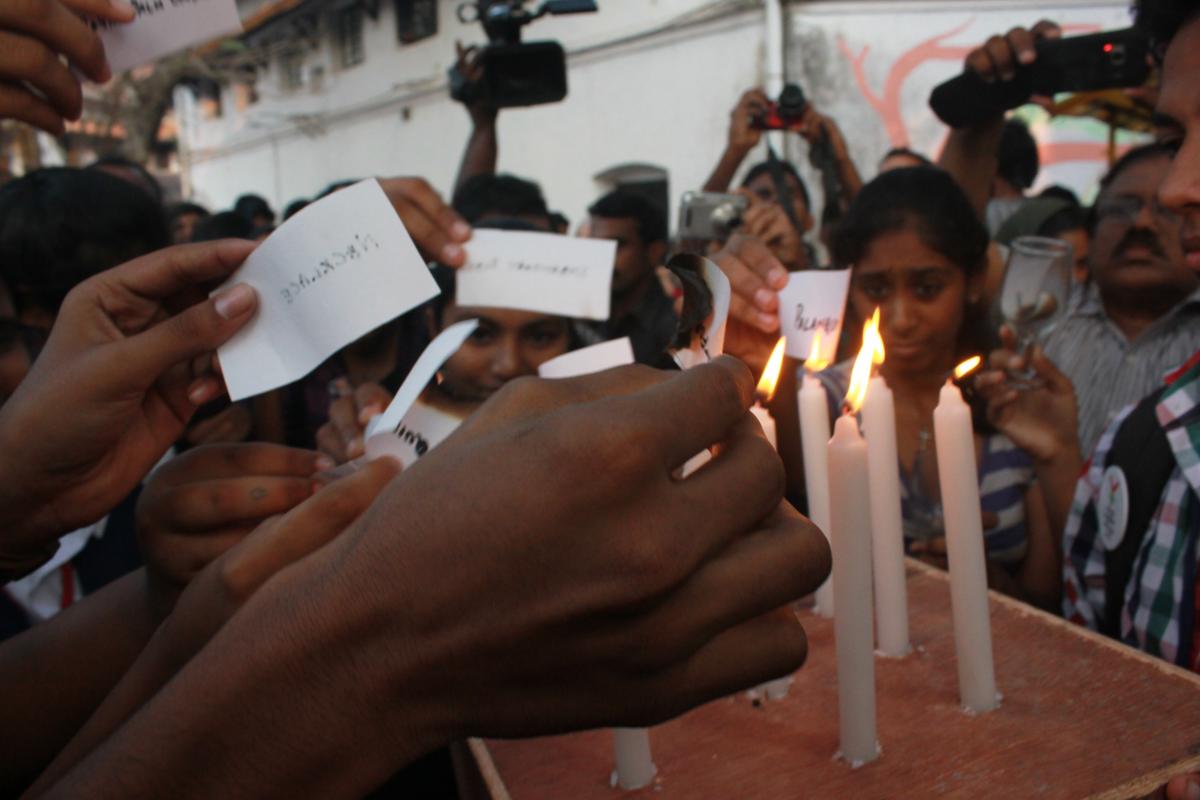
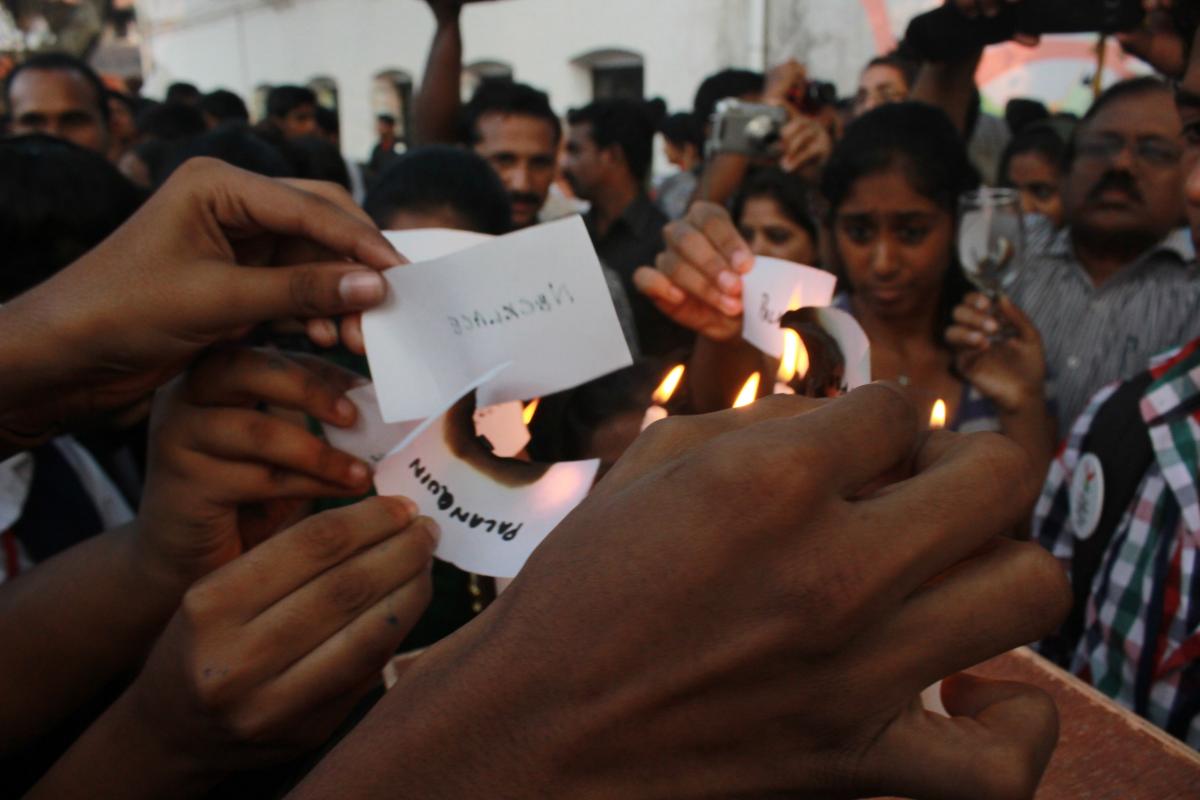

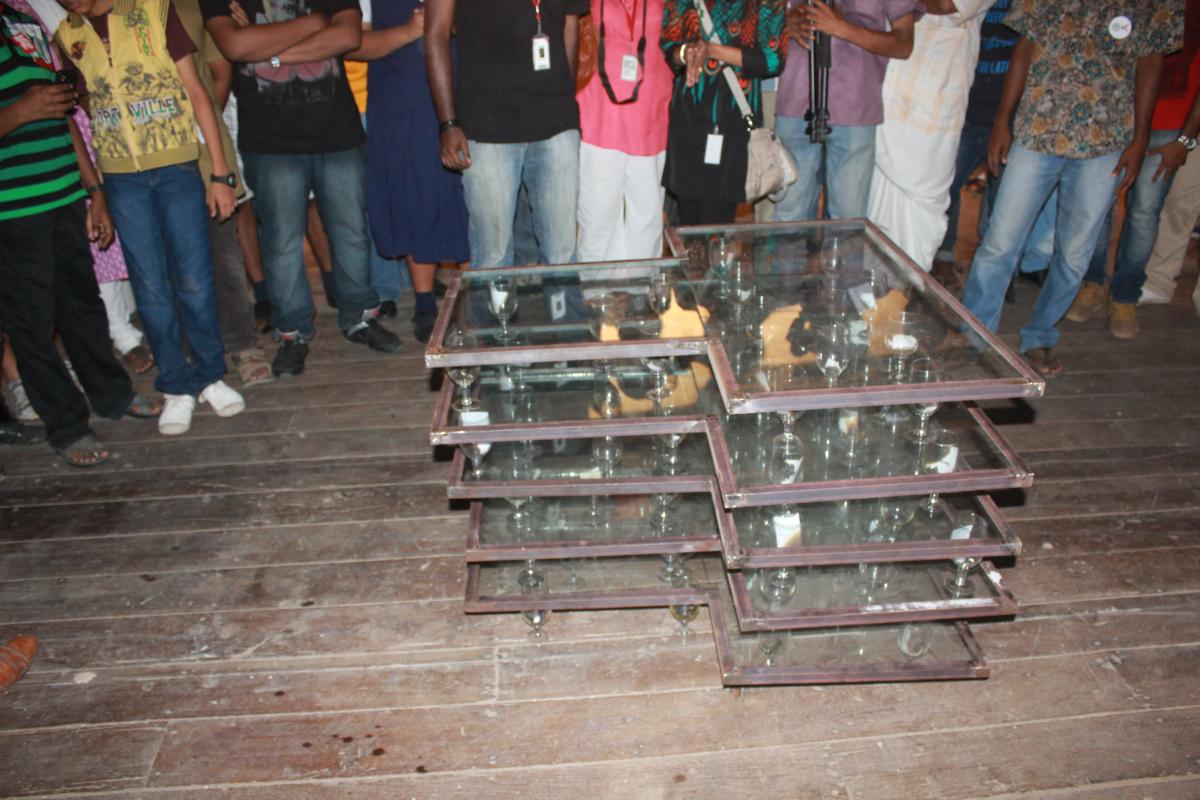
.jpg)
.jpg)
